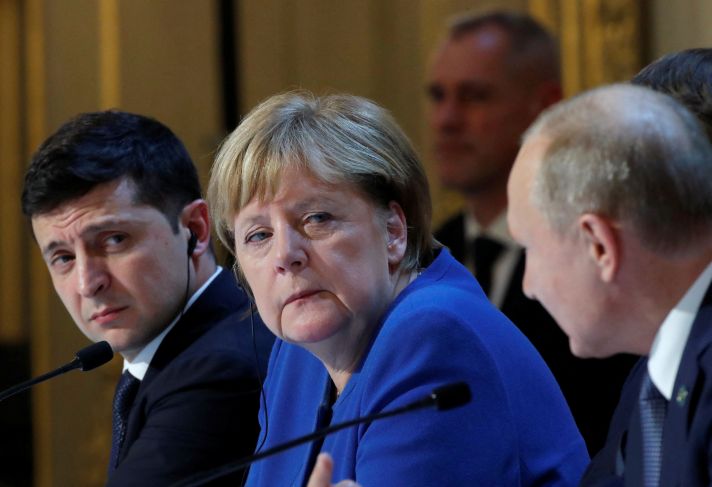After my article on “Ukraine Fatigue?”, I began to wonder about how we could think outside the box to get talks going on the Russia-Ukraine war.
The situation is dire, with no apparent room for maneuver.
Ukraine is committed to liberating all its territory from an illegal and unprovoked Russian occupation, while Russia under Vladimir Putin is set on destroying Ukraine and wiping out its culture, history, and identity as a democratic national state.
Negotiations have not achieved any results to date, and there is a general distrust of Russia since it has broken its word time and again.
To date, and despite Western attempts at sanctions, arming Ukraine, and cyberwarfare, Putin isn’t budging, and the tide on the battlefield appears to be slowly turning in Russia’s favor.
Meanwhile, Ukraine’s President Zelensky also sees the conflict as a zero-sum game.
Outside the region, world leaders are weighing the costs of the war globally. Access to oil and gas, a lack of fertilizer products for the upcoming planting season in Africa, a lack of food for many nations who rely on Ukrainian grain, as well as further global inflation and its social and political consequences weigh heavily in their deliberations.
In this context, France’s President Macron, Germany’s Chancellor Scholz, and Italy’s Prime Minister Draghi, went to Kiev last week. They did so after previously making public proposals that Ukraine give up seized territory without first consulting with President Zelensky. This, along with their three-way conversations with Putin to which Zelensky was not invited, may well have burned them as useful intermediaries.
France has historically been an ally of sorts for Russia, and Mr. Macron seems to be following former President Charles de Gaulle’s “politique de grandeur”. This may lead him to conclude that maintaining ties to Russian President Putin is essential over the longer term.
Germany buys most of its energy requirements from Russia. Chancellor Scholz is relatively new in his role, and it shows. Despite many statements, Germany has only delivered 35% of the military hardware that it had promised to Ukraine. Other countries, like Poland, have delivered 100% and continue to take in refugees on very positive terms.
Mr. Scholz has delayed terminating imports of Russian oil and gas until at least December when either alternate sources can come online, or the war somehow ends. Given this reality, Scholz might be perceived as having a vested interest in pursuing an end to the war at whatever cost to Ukraine.
Mr. Scholz also lacks his predecessor’s track record on the international stage. His dependency on Russian energy products would likely negate his credibility as an interlocutor.
As for Mr. Draghi, Italy lacks the diplomatic, military, and economic heft to have any possibility of crafting a good position as an intermediary.
So, who has global credibility as a leader, a good relationship with Putin, and can work under the radar with no political axe to grind?
Angela Merkel, perhaps.
As Germany’s Chancellor for sixteen years, she negotiated the Nord II pipeline agreement with Russia, knows Putin well, and can speak with him one on one in German, a language that they share. There may be a reservoir of trust there that is lacking in relationships that Putin has with other Western leaders. She has been a formidable negotiator and leader and retains a formidable network of political leaders and political thinkers around the world. The respect that U.S. and European leaders have in her could make her acceptable to the fragile pro-Ukrainian front.
Since she would be acting in an unofficial and confidential manner, such an arrangement could provide Western leaders with plausible deniability should talks be a failure.
The current situation and the entrenched position on both sides leaves little room to hope for peace. While I don’t trust Putin’s word given his track record, a military solution is currently not in the cards for Ukraine. At the same time, as the war drags on, Mr. Putin is not immune to internal pressure caused by multiple Russian casualties, internal dissension within the military and security services as well as with oligarchs losing their possessions and last, but not least, the impact of the sanctions on Russian families facing huge economic distress.
So, perhaps laying some groundwork to establish a dialogue now could be useful in the near future pending how things develop.
Merkel may be an ideal intermediary who can work with both leaders to establish a dialogue and possibly establish some options that may not be the solution each seeks but that can possibly provide each with an out.
And that is probably the best that we can hope for at this time.
Sigue leyendo: Ukraine Fatigue?
Edición: Laura Espejo
El senador estadunidense Markwayne Mullin la sustituirá en el cargo
Reuters
Brigadas de salud visitarán escuelas primarias públicas para revisar y completar los esquemas a niños
La Jornada Maya
Los hechos se registraron en el fraccionamiento Encinos II
La Jornada Maya
